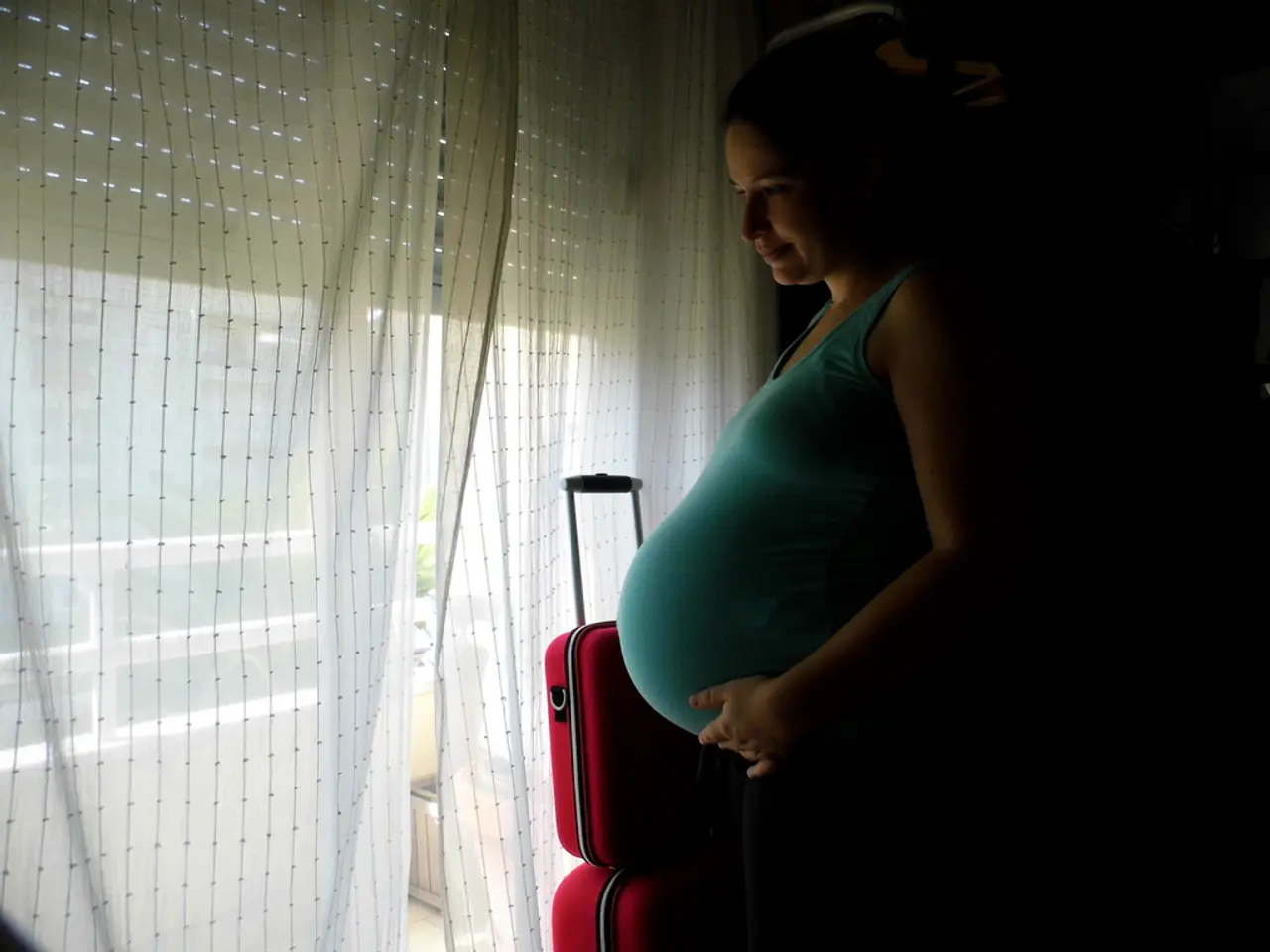Potentially Harmful Substances to Steer Clear of During Pregnancy: An Important Guide
Pregnancy can be a time of joy and anticipation, but it's also a period of concern due to potential environmental factors that may impact the baby's development. Here are some toxic chemicals that expecting mothers should avoid to minimise risks such as miscarriage, congenital defects, preterm birth, and developmental disorders.
1. PFAS (Per- and polyfluoroalkyl substances)
PFAS chemicals like PFBA, PFDoDA, PFHpS, and PFHxS are linked with an increased risk of recurrent miscarriage. These substances are classified as Group 1 carcinogens and pose risks including miscarriage and other reproductive harms.
2. Phthalates
Phthalates, commonly found in plastics, personal care, and cleaning products, are endocrine disruptors. Exposure is linked to miscarriage, metabolic disease risk, and pregnancy complications such as hypertension and preeclampsia.
3. Bisphenols (BPA and BPS)
Bisphenol S, a BPA substitute, is associated with longer time to conceive and can disrupt endocrine function, affecting fetal development.
4. Pesticides (including fungicides like triazoles)
Exposure to multiple pesticides during pregnancy increases the risk of complications such as intrauterine growth restriction, gestational hypertension, and possibly childhood cancers.
5. Toxic cleaning product chemicals
Chemicals such as 2-Butoxyethanol, formaldehyde, triclosan, and quaternary ammonium compounds can cause developmental toxicity, respiratory irritation, endocrine disruption, and increase cancer risk. These substances should be avoided in household cleaning products used during pregnancy.
Additional notable substances include ibuprofen and isotretinoin (medications linked to congenital defects and miscarriage), excessive vitamin A supplements, and certain herbal supplements which can also increase miscarriage risk.
Avoiding exposure to these chemicals during pregnancy helps reduce risks. Pregnant women are encouraged to minimise use of products containing these chemicals, use non-toxic cleaning alternatives, and consult healthcare providers about medication safety.
Other toxic substances to beware of include arsenic and mercury. Arsenic exposure during pregnancy can lead to high blood pressure and anemia in the mother, and pose a risk to the baby, although its effects are not well-defined. Arsenic can be found in old outdoor wooden furniture treated with chromate copper arsenate, and in the water supply at home, so it should be tested.
Mercury can affect the development of the nervous system in the baby, potentially causing birth defects, motor skill issues, speech difficulties, vision problems, and cognitive impairments. To avoid mercury, limit consumption of certain types of fish like shark, king mackerel, tilefish, swordfish, and fresh and white tuna.
Contact with pesticides can result in premature birth, low birth weight, miscarriage, and birth defects. Arsenic is a major contaminant of soil, often found near waste dumping grounds or agricultural fields. To avoid lead, check the lead levels in your home's plumbing, repaint walls with lead-free paint, and avoid old ceramics, crystal glassware, and lead wicks in candles.
By being aware of these toxic chemicals and taking necessary precautions, expecting mothers can help ensure a healthier pregnancy and a safer environment for their developing baby.
Read also:
- Exploring Botox as a Treatment for Interstitial Cystitis: Insights, Adverse Effects, and Further Details
- Linking brain weakness and cognitive decline: An examination of the potential relationship
- The Powerful Evidence behind the Enchantment of Kindness: 18 Insights Revealed
- Indications of Tinnitus Recession and Possible Causes





